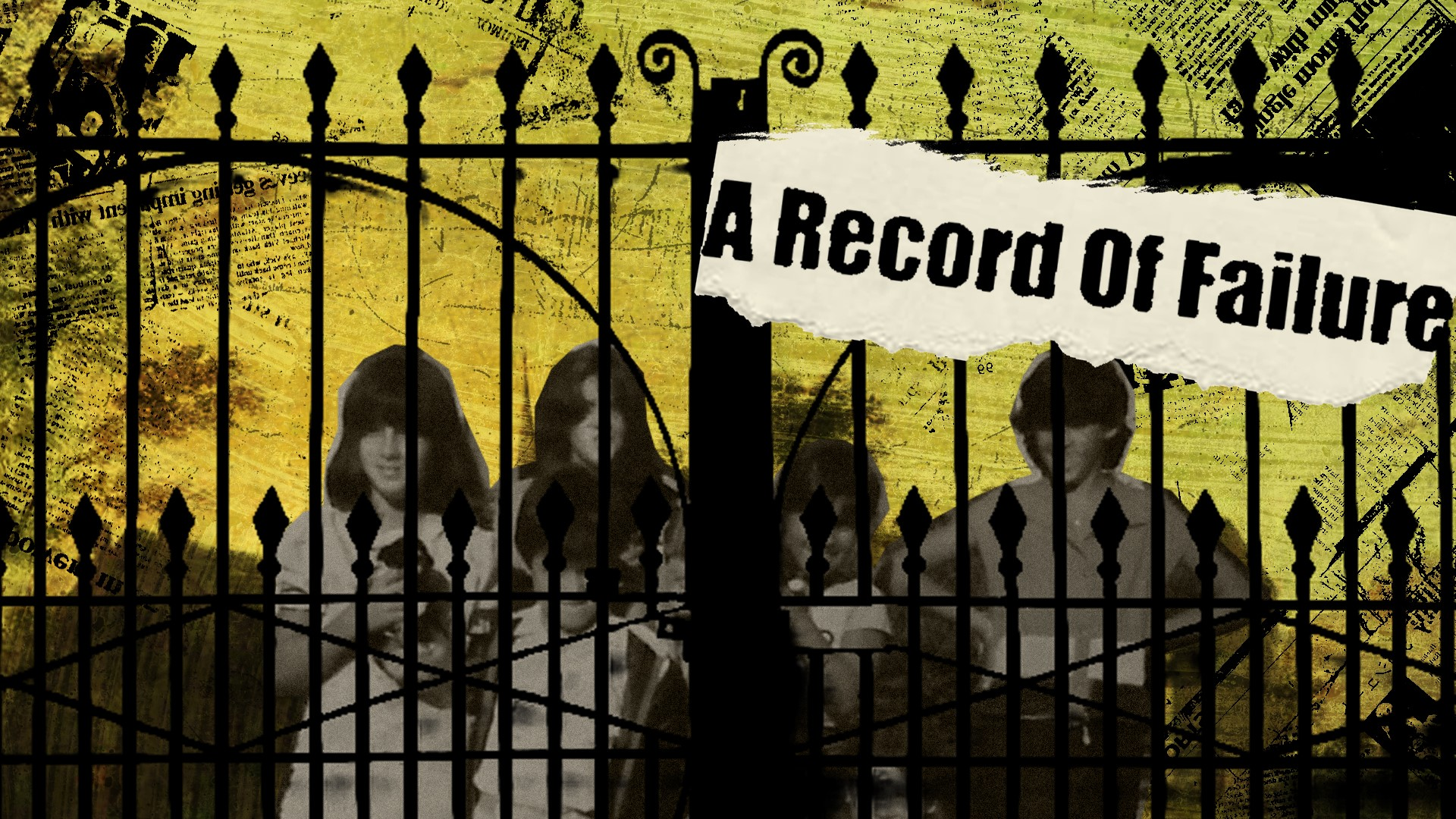How Sefton failed its most vulnerable children

New figures, documents and stories uncovered by the Post show how the borough is letting down its own
By Jack Walton and Jo Davies
In 2005, a three month old baby was found dead on the sofa of a home in Sefton. Baby A, as the child would come to be known, was born addicted to heroin and her parents had a combined 150 convictions for drug offences. It was a case of severe neglect.
Four years later, a Liberal Democrat councillor on Sefton Borough Council, Ian Brodie-Browne, received a note from the council’s communications department to say that a journalist at The Sunday Telegraph had been in touch. An Ofsted report the previous year meant it was common knowledge in Sefton that the council were taking too long to enact Serious Case Reviews, which are carried out to investigate the circumstances when a child has died as a result of neglect. But now it seemed like the newspaper was sniffing around a specific case that Brodie-Browne had never even heard of.
That’s because virtually no one at the council had. Brodie-Browne spoke to then-Liberal Democrat council leader; Tony Robertson, who hadn’t been informed of the case. Baby A appeared to have slipped between the cracks. It turned out that a report on the incident had been published very shortly before The Sunday Telegraph got hold of it, which was highly damning of the council’s care agencies for failing to intervene. No one within the Children’s Services department decided to flag the report to the council’s leadership.
It was an extremely embarrassing episode for the department, and a clear sign things had to change. A motion was passed for all Serious Case Reviews in the borough to be reported to the cabinet member for Children’s Services. “I admit, at that stage I thought I’d done my job,” Brodie-Brownee says.
As he now suggests, perhaps that thought was naive. The Post has spent the past three months investigating the department and the picture that has emerged is truly bleak. We’ve listened to testimony of parents whose children have been separated from them for years due to failures to swiftly enact court proceedings, obtained data proving a severe decline in services, seen children essentially locked out of the education system due to council incompetence and uncovered one bizarre incident in which the council seemingly saw fit to send two teenager neighbours into the home of a mother to assess her parenting skills. We’ve spoken to local teachers, social workers, council workers, parents and charities and the evidence is clear: Sefton’s most vulnerable children are being repeatedly failed.
But let’s rewind. Seven years after the Baby A case, in 2016, Ofsted arrived in Sefton to carry out an inspection of the council’s Children’s Services department. Their inspectors found “serious and widespread failures in safeguarding children”. In the years since 2016 a number of follow-up reports have been carried out. The most recent — last year — gave another “inadequate” grading and found a “trajectory of deterioration since 2016”.

The original 2016 report — which rated the service as “inadequate” — was described by one former worker within the department as “like a bomb going off”. Government-appointed commissioner Paul Boyce was sent in last year as a last ditch attempt to save the service. The fear is that if things don’t change soon it will be taken out of Sefton’s hands altogther and handed to an independent trust. If that happens, the budget could be slashed and crucial services cut. Asked in February at the council’s scrutiny committee for the department whether children in the borough were safe, Boyce replied: “Read the Ofsted report, that’s the answer.”
One of Ofsted’s key findings was of “drift and delay” in the system “result[ing] in highly vulnerable children remaining at risk of significant harm”. “Drift and delay” essentially means that important processes designed to support parents and children, especially those with special educational needs (SEN), are significantly prolonged, with consequences like children being out of school for months or even years.
It’s a theme that emerged in the documents we obtained, as well as from the parents we spoke to. Case in point: Mary. Mary, which is not her real name, has two adopted children. We have changed their names and sex to protect their identities. The older of the two; Alex, started to become extremely difficult to control at an early age and the intensity of their outbursts escalated as they grew older. Mary describes being “up multiple times every night”. After a significant incident, the council intervened — concluding that Mary and her partner’s parenting was not adequate — and both children were placed into care.
What Mary feels wasn’t taken into full account was that Alex had been born with Foetal Alcohol Spectrum Disorder (FASD), a result of their birth parents drinking alcohol throughout the pregnancy (they also used heroin and cocaine). Mary says she had not been warned by social services prior to adoption, despite the fact they were fully aware of the parent’s substance misuse. FASD is known to often cause severe behavioural and learning difficulties, and the children’s home Alex was placed in soon found this out too: Alex was placed in a cellar room with bars on the windows.
After the children were taken out of Mary’s care, using what is known as an Interim Care Order, the legal timeline for proceedings to be completed and for a final decision from the Family Courts should be 26 weeks. The Children and Families Act 2014 sets this out clearly. Sir James Munby — the former President of the Family Division of the High Court — made clear at the time that this was not a guideline, or rough timescale, but a target that needed to be met to ensure families were not split up unnecessarily. Despite this, Mary’s case took two years.
Even though a court-appointed therapist said, in January 2021, that Alex should be in a school in wrap-around care (full care including support before and after school hours) and not in a home, the process dragged out until late 2022, when finally a court ruled the threshold had not been met to remove the children from their home after all. Mary believes the ordeal has severely damaged Alex’s mental health. “[They’ll] need therapy for two years after what [they’ve] been through,” she says.
Unfortunately, this is not uncommon. The Post has discovered through an FOI that last year in Sefton, the cases of 165 different children were not processed through the courts in the time limit. By comparison, in 2017 — the year following Ofsted’s damning inspection — that number was six. Which is to say, in the time period since Ofsted demanded urgent improvement this aspect of the service has instead seen a serious deterioration. A SEND professional, with experience working with many families in Sefton, responded to the numbers we obtained by saying this: “If there were four outside the time limit you could look at why that had happened and look at the staff that were working with them, but if there’s 165 that’s dereliction of duty”. Sefton Borough Council (SBC) point out that “the impact of the pandemic cannot be underestimated” in these cases and that court delays “can be out of [their] hands”.
And that’s not all. 2016’s Ofsted Report also noted that Initial Health Assessments (where social workers assess the health needs of children in care) were not being completed on time. Then, 60% were not meeting the statutory guidelines. FOIs filed by The Post show that figure rose to 69% last year. What’s more, the amount spent on the service has been rising in that time, from less than £30 million in 2017 to a projected £58 million this year, though the council point out rising costs and demand has contributed to this.

“I don’t think there’s anything malicious about it, but it is rank incompetence,” says a local charity worker who works with SEN children. “And to a child who is out of school for 18 months because they can’t get their act together, what’s the difference?”
Moreover, The Post has seen evidence of what appears to be very odd decision-making by the council. For example: a memorable anecdote from one mother we spoke to, Tracy (not her real name). She has had five children removed from her care, and explained how two neighbours had been sent by the council to temporarily live in her house to “supervise” her parenting on the council’s behalf and report back if they noticed anything untoward.
Strange enough for civilians to carry out work on behalf of the council, but it gets stranger. The neighbours were both 18 years old and were already friends of Tracy and her partner, who questioned whether two teenagers they knew were best placed to carry out such a serious task. Indeed, according to those present, the judge in court was equally baffled by the practice and said he could find no good reason for Sefton to do such a thing. Nonetheless, there is evidence that the information provided by the teenage neighbours was used by Sefton to remove the children from their family home.
In such cases, court judgements are confidential and by law are not for publication outside the family court. For that reason, it’s impossible for us or anyone else to know for sure the precise logic behind Sefton’s final decision to remove Tracy’s children from her care, and as such there’s no reason for us to believe it was incorrect. But equally, it’s not difficult to see why Tracy feels angered by the process used by the council. The council denies that it would send teenage neighbours into a house like this, saying it “[does] not recognise this practice”.
Perhaps more disturbing still, there appears to be evidence of the council attempting to hide from its problems, rather than face them. The Post has been told by one governor at a local school that more than half a dozen child protection cases were closed down without being investigated in just two months this year. “They basically just want them off the books — it’s the culture in Sefton,” the governor claims. This is serious stuff; child protection cases are designed to enact intervention when a child is thought to be at risk of harm. But — at least according to the school governor — it appears in Sefton they’re simply being scrapped to avoid paperwork. When we put this allegation to the council, they did not address it in their reply.
In May last year, after Ofsted released yet another damning report, saying there had been a "significant deterioration in services" from an already low bar, the borough’s controlling Labour group gathered days before a full council meeting. According to one party member present at the meeting, group leader Ian Maher stood up and instructed his party to “get as many questions into the cabinet members,” as possible, in order to clog up the meeting’s allotted time and avoid discussion of the report. Mission accomplished: 11 of the 12 questions asked were nothing to do with the report.

Strikingly, the lack of interest in scrutiny seems to stretch as far as the council’s scrutiny committee. In January, a testy meeting of the committee descended into acrimony when vice-chair Paula Spencer launched into an extended rant about the Improvement Board, which was set up last year to oversee changes to the department. Spencer said she was “sick and tired of hearing about the Improvement Board” and questioned why it had anything to do with scrutiny.
“Am I missing something here? What’s the role of the improvement board in Overview and Scrutiny? Does the Improvement Board happen in a secret meeting that we don’t know about? — is it a disco or something like that?” she said. Exasperated, commissioner Boyce accused the committee of “chasing a red herring while the world burns around you”. The council told The Post that the scrutiny committee is aware of the role of the improvement board and since this meeting “a range of measures have been introduced, including the Scrutiny Chair joining the Board and a comprehensive training programme”.
Another mother, Anne, has an adopted 13-year-old boy with autism. When he was preparing to transition from primary to secondary school she went to a tribunal to get him placed in an SEN school. It ensured there was a legal obligation to provide for his needs. She was told his Educational Health Care Plan (EHCP) — a crucial document setting out the needs of a SEN child to ensure schools put the proper provision in place — would be ready in 20 weeks. But, as is customary in Sefton, it took 18 months, and when it arrived it “wasn’t worth the paper it was written on”. Her case is the norm: documents obtained by The Post show that in 2022, only 18% of EHCPs were completed in the 20 week guidance time. In 2016, this was 100%. Once again, it’s an example of a service going backwards, not forwards.
The importance of EHCPs can’t be understated, without them vulnerable children simply won’t get the support they need. The council told us that “2022 saw significant demand on the service from new referrals and the need to clear a backlog of new assessments,” which came at “a time of challenge for the team in terms of capacity due to unexpected bereavement leave for several team members.” They added that in the second half of the year, “the team had a new service manager in place and extra capacity which has resulted in the average now at 35%”.
As a result, Anne’s son ended up at a school she believes wasn’t fit to cater to his needs. Within days the teachers had placed him in a “chill out room” (which Anne says had no natural light and made her son feel highly anxious) and after three weeks the school threw in the towel and said they were unable to provide for him. That was November 2021: he’s been out of school ever since. “It’s beyond the pale neglect,” Anne says. “We’ve been in a hellhole as a family.”

She explains that the fight to get her son back into education became so all-consuming she had to take time off work and was threatened with the sack. It involved countless emails asking for council intervention and crisis meetings with council caseworkers, some of whom she says admitted they hadn’t even read the EHCP. “I would send emails saying ‘I am begging for your help” and they’d pass it on and not even reply,” she says. “You have to fight and fight”.
This is a sentiment echoed throughout our conversations with roughly a dozen parents: that in order to get anywhere at all you have to commit to an almighty struggle against a seemingly impenetrable bureaucracy. “If you don’t go and fight yourself your child just stays at home,” are the words of another mum, Denise. ‘‘You have to be like some kind of nutter, some of these parents are warriors and others aren’t, they just don’t have the wherewithal.”
Last year, the council brought in a new broom: Martin Birch, a former council director in Sunderland and Blackpool with an exemplary track record. Liberal Democrat John Pugh, who sits on the employment panel and interviewed Birch for the role, says he “seemed dynamite”. But after just a year in the role, Birch too has now walked, one of several directors in recent years to departed prematurely.
While there are conflicting reports and rumours as to the full reasons for his departure, one common thread ties together all the accounts given to The Post: Birch didn’t know what he was getting himself in for. “He wanted to say: ‘I don’t have the tools I thought I would, I thought I’d at least have the support to turn things around,” says one source who spoke to Birch regularly.
It’s important to bear in mind in these cases how high the emotional stakes are. A headteacher at a local SEN school says: “It's emotive for parents. They’re the ones at home whose children are battering them, but it does mean they can be quick to assume there’s malevolence on the part of Sefton”. Ultimately, trust has absolutely broken down within the service.
The headteacher’s appraisal of the situation takes a slightly more generous view of Sefton than most of the people I speak to: “it’s just an utter mess,” she says. “And yes they’re a mess, but you have to also understand the context they’re working in”. The picture she paints is more complex than pure ineptitude, rather one of chaos caused by multifarious factors that have converged at once to create what she terms “a living nightmare”. Cuts to schools have meant lower capacity for SEN children, which means SEN specific schools taking on quantities of children they are unequipped to deal with. “We have 10 resource places, but I have at least 27 children with considerable SEN,” she says.
One source at a local charity who works with the council describes “huge tensions between the staff in the council.” They continue: “It’s fisticuffs — it’s pathetic, I’ve listened to people talk about wanting to punch each other’s heads in”. That sounds extreme, but several sources describe a volatile situation, with one councillor attributing it to Birch’s departure. Besides churn of directors, the council has seen many social workers leaving, with one account of a social worker so “overwhelmed” at the scale of her role she broke down in tears in front of a family she was helping. The council recently hired 21 South African social workers to combat the issue, and have been offering new staff £3,000 above the pay grade alongside golden hellos. They pointed out that they “do not recognise” allegations of bullying and that a recent staff survey found “good relationships within teams and found Sefton a supportive working environment.”
Much has been made in recent months of the “ghost children” phenomena in British schools. Since the pandemic, thousands of children have simply not returned to education. Several boroughs across Merseyside rank particularly poorly on this front and — according to some reports — the “missing” figure is over 140,000. It is, without question, a national crisis.

Sefton’s own ghost children might not get the headlines of this cohort, but the fate inflicted upon them has been every bit as damaging. Most of the parents we spoke to had experienced children out of school for months or years at a time. There are of course many mitigating factors, but as one charity worker says: “why isn’t every other council in this mess then.” And of course, many of the vulnerable children of 20 years ago are the vulnerable adults of today. The cycle perpetuates.
The emotional toll this has all taken is incalculable. The SEND professional recounts the story of a boy she worked with who had been at a primary school in Sefton before going to a specialist school. He was misdiagnosed at an early age. The boy was “very bright” and was later diagnosed with dyspraxia, which affects movement and coordination and requires specialist provision. His experience of not being provided with a communication system until he was 12 years old left him deeply scarred, she says. PTSD was diagnosed in his early teens.
As an older teenager, he wrote of his damaging experiences in the school system. He was encouraged by a Sefton worker to send it to the council’s complaints department. In a letter in response to his complaint, "they basically told him it was all his fault". The SEND professional calls it the “most damaging and inhumane letter” she’d ever read.
In response to our reporting, Mhairi Doyle, the council’s Cabinet Member for Children’s Services, told us “a great deal of hard work has gone into delivering the actions in our improvement plan” since the most recent “inadequate” Ofsted report and department was heading “in the right direction”. She added:
“Demand is at unprecedented levels, which is why the Council has committed additional resources to support the delivery of our improvement plans and to address the challenges we face in the recruitment of permanent social workers and in the children’s care market. Improving our service was never just about improving our Ofsted rating, it’s about making sure children benefit from the best services possible, making sure they are safe, protected and inspired to reach their full potential.”
Sefton isn’t the only struggling council in England, that goes without saying. Cuts to council funding have been brutal in the last 15 years, and worsening services are an inevitable consequence. Only this week Liverpool City Council’s own Children’s Services department was rated “inadequate”. But Sefton has seen a unique degree of failure, and one that coincides in recent years with a huge increase in spending. Pugh speaks plainly about the gravity of the situation. “There but for the grace of God we haven’t had another baby A, but that’s the context we’re in.”
The names of all parents and children quoted in this story have been changed to protect anonymity.

Comments
Latest
The carnival queens of Toxteth
The watcher of Hilbre Island
A blow for the Eldonians: ‘They rubber-stamped the very system they said was broken’
How Liverpool invented Christmas
How Sefton failed its most vulnerable children
New figures, documents and stories uncovered by the Post show how the borough is letting down its own